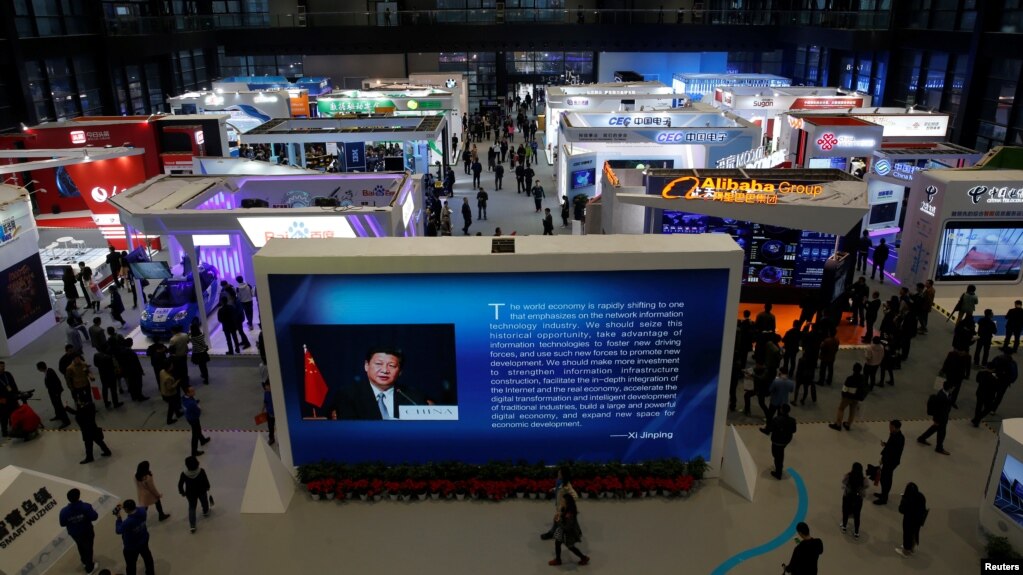China Supports--Government Control of Internet
March 19, 2017






China is seeking an international agreement to strengthen government control over the internet.
Chinese officials say governments need more power to fight attacks on computers and cyber terrorism. They want to extend the idea of sovereignty, or self-rule, over land and sea to information technology.
Recently, China released a report explaining how it will seek to persuade other countries to join in an international partnership. The idea is to increase the power of countries over cyberspace, and reduce the influence of private businesses.
The Chinese report is called “International Strategy of Cooperation on Cyberspace.”
Long Zhou is with the Cyber Affairs division of China’s foreign ministry. He said countries throughout the world are increasingly worried about cyberattacks. “Cyberspace should not be a space of no laws,” he added.
Censorship
Some observers see the plan as a way to extend the Chinese idea of government controls on information across large parts of the world. People have strongly criticized China for its restrictions on the internet. The government blocks Google, Facebook Twitter and many foreign news websites from being seen in China.
Observers believe that if other governments support the Chinese campaign, American companies -- which dominate the internet -- will be the first to be harmed.
Sheila Jasanoff directs the program on science, technology and society at Harvard University’s Kennedy School in Massachusetts.
She told VOA that “the inventors of cyberspace were idealistically and ideologically convinced that they had created a (place) of perfect freedom, where anyone could gain entry and behave as if no laws existed. It has been interesting to see how this allegedly wide open and free space has gradually been ‘written over’ with all the markers of national sovereignty and rivalry,” she said.
Russian role in U.S. election
Experts say China is trying to use the anger in the United States about reported attempts by Russia to influence the 2016 presidential election.
Long Zhou noted “especially in recent years, the number of cyber security events throughout the world is increasing, posing challenges to all countries’ efforts to maintain political, economic stability and protecting all citizens’ rights and interests.”
Lee Branstetter teaches at the Heinz School of Policy and Management at Carnegie Mellon University in Pennsylvania. He says China’s plan would cause harm.
“The China solution is a proposal to create huge barriers to the free flow of information across borders,” he said. “It is hard to see how a global digital economy could (operate) under such a regime.”
China’s plan
China is trying to persuade other governments and international agencies -- including the United Nations -- to accept the idea of “cyber sovereignty.” It says this means each country should be able to govern the internet in the way it wants without interference from other governments.
Long said the U.N. recognizes the principle of land and sea sovereignty so it should also recognize cyberspace sovereignty since the issues are similar.
He added that the international community is talking about the need to, in his words, “produce new international legal instruments to deal with the security situation in cyberspace.” These situations include cyber terrorism or cross-boundary cybercrimes.
China will talk about its plan at meetings of U.N. agencies, the BRICS group and the Shanghai Cooperation Organization. Long recently told reporters that Russia will join in China’s campaign to make international rules for cyberspace.
Sheila Jasanoff thinks there are other reasons China wants to control the internet.
“There is good reason to believe that China will do more to limit the freedom of information of its citizens than to ensure its own security with regard to things like critical infrastructure,” she said. “The most effective firewall will likely be against the creation of domestic networks of civilian information exchange and protest.”
No comments:
Post a Comment
Comments always welcome!